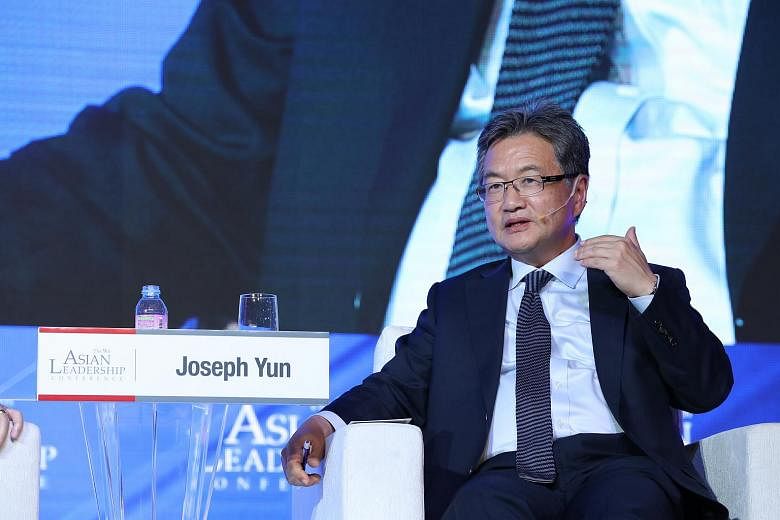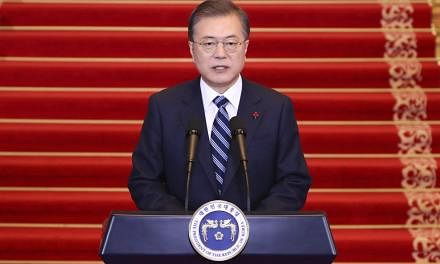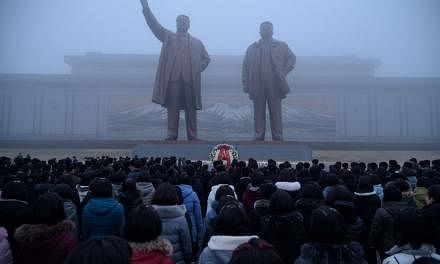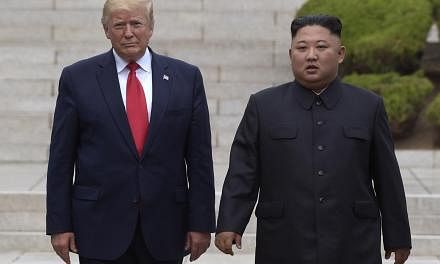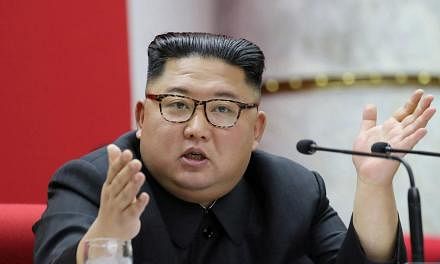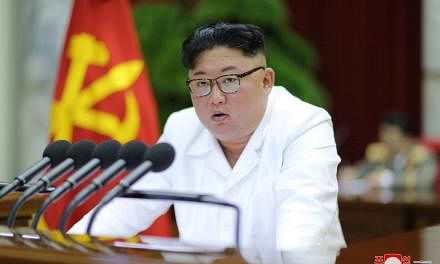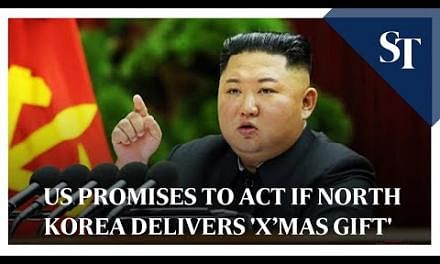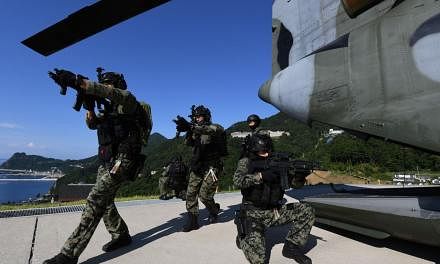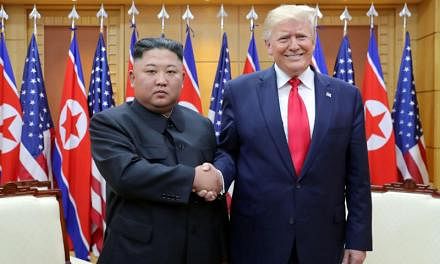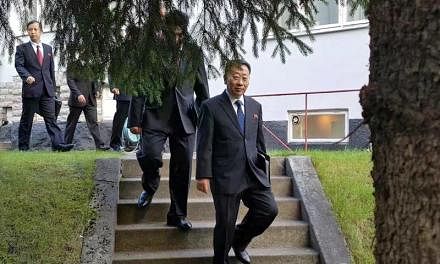WASHINGTON (WASHINGTON POST) - The former US diplomat who secured an American prisoner's release from North Korea warned on Tuesday (June 5) against prioritising human rights concerns or other non-nuclear matters in the upcoming summit between President Donald Trump and Kim Jong Un.
"I really think it would be a mistake to overload the agenda," said Joseph Yun, who served as the United States' special representative for North Korea policy until March, a role in which he secured the release of American student Otto Warmbier, who died shortly after his return.
Yun cautioned that the Kim-Trump talks would have to "concentrate on denuclearisation above all else."
His warning comes as lawmakers are clamouring for Trump to eventually secure a deal that guarantees not just that Pyongyang will dismantle its nuclear weapons, but also cease cyberattacks, give up its biological and chemical weapons, and respect the human rights of its citizens.
Yun's comments to a Senate Foreign Relations subcommittee struck a chord with one of Trump's staunchest congressional allies, who also stressed that it would be a mistake to focus on human rights if doing so could complicate the primary goal of denuclearisation.
"Look, we're all about human rights," Republican Senator James Risch of Idaho. "But if you try to overload this and try to resolve all these things at once, I think you're just setting things up for failure."
The Trump administration has come under fire for not prioritising the global promotion of human rights and for distancing itself from like-minded allies when dealing with aggressor nations.
Several lawmakers have raised concerns that Trump's team might similarly sideline the interests of South Korea and Japan, or give Kim a pass on North Korea's other aggressive actions at home and abroad.
Such matters "need to be embedded in a broader political discussion that encompasses a wide variety of issues," Victor Cha, the top Asia policy official at the National Security Council during former President George W. Bush's administration, told lawmakers.
"Actual steps on human rights, treating their people better, would actually be a very important indicator of the way this regime is going to change the way it does things."
The dispute over if and when human rights will enter Trump and Kim's diplomatic dance is just one area in which experts and the president's supporters have broken ranks, as watchers lay out expectations for the historic summit.
Both Cha and Yun said on Tuesday that the Singapore summit cannot reasonably be considered a success unless North Korea agrees to make a full, detailed declaration of all its nuclear sites and fissile material.
Previous attempts at denuclearisation talks failed, both stressed, because North Korean negotiators refused to provide such a declaration.
"Without knowing what they have, how are you going to negotiate with them?" Yun said.
Cha said international inspectors would then have to be allowed in to check the sites and stores before the United States could begin to contemplate rewarding the North Koreans with concessions.
"We would have to start seeing some actions on the part of the United States when we are at the verification stage," Cha said.
But the president's critics are sceptical about whether Trump can secure consequential promises where his predecessors failed. Even the president has scaled back his aspirations, going from promising a deal to telling the media that June 12 will be more of a "getting-to-know-you" meeting.
Trump's allies on Capitol Hill resisted measuring the success of the summit by whether Trump is able to produce a commitment that previous administrations failed to deliver.
"You need the two leaders when they sit down to reach an agreement on an objective... and after that happens, they both need to pledge that they will work in good faith," Risch said. "They need to know that we are a willing partner, that we will be a cooperative partner."
Risch's criteria for success will likely fall short for lawmakers who have seen North Korea offer similarly vague promises in the past, only to back away after securing concessions. Democrats in particular are also frustrated that Trump's team has not briefed Congress on the plans for the negotiations.
Risch said Tuesday that Trump, Vice President Mike Pence and Secretary of State Mike Pompeo had all personally guaranteed him that not only would the White House seek lawmakers' advice during negotiations, but they would present any deal to the Senate for its formal seal of approval.
"It is their intent to craft this in such a way that it is a treaty," Risch said. "They are viewing it in that regard."
